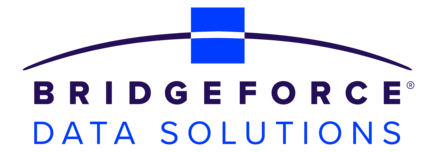With every new presidential administration comes change. A new agenda, new expectations, and new efforts to reshape society in accordance with the viewpoints of the ruling party. Financial regulation is often a topic of conversation, particularly with Democratic administrations – so what should we expect from the Biden administration as it relates to financial services?
One area that continues to be a hot subject is credit reporting. Since the formation of the CFPB in 2011, credit reporting has come into the spotlight, and deservedly so, as your credit report is foundational for financial success. Establishing a history demonstrating your ability, stability, and willingness to pay your debts builds a track record that facilitates your access to credit. Need a mortgage to buy your house? Your credit report is the first thing lenders consider. And it can be derailed in an instant if you make a mistake. But what if your lender is the one that makes the mistake? This is why the accuracy of credit reporting is a critical issue for US consumers.
While accuracy of reporting remains a key topic, it’s not the only concern with the US’ credit reporting ecosystem. The Biden Plan for Investing in Our Communities Through Housing provides some insights into how the new administration feels about the current credit reporting ecosystem. It notes that “credit reports, which are issued by just three large private companies, are rife with problems: they often contain errors, they leave many “credit invisible” due to the sources used to generate a credit score, and they contribute to racial disparities.” So what does the Biden administration think will solve the problem? Creating a public credit bureau within the CFPB, and slowly phasing out the private credit bureaus over the next 7 years.
In my opinion creating a public credit bureau is not the right approach and would recommend a private / public partnership to better meet the longer-term needs of all stakeholders. The private credit bureaus have worked on their end to make improvements in their data quality and disputes handling processes and to continually expand their reportable universes. Banks and lenders have made significant investments and improvements in their Enterprise Risk and Compliance Management Systems that include; Credit Usage, Reporting, and Disputes handling. New automated solutions like our Data Quality Scanner® solution (DQS) and enhanced internal and credit bureau reject and error reporting have been implemented to improve accuracy and reduce disputes. We believe that with continued evolution of the credit reporting ecosystem and greater industry-wide cooperation with guidance and support from the CFPB, we can meet customer needs without creating a public credit bureau. It’s my opinion that the industry should focus most immediately on the disputes handling customer experience, ensuring accuracy of reporting for new pandemic-based payment deferral and loss mitigation programs, and providing increased customer education. In parallel, thinking bigger and bolder for the long-term by offering centralized automation of pre- and post-credit reporting accuracy testing and one stop automated disputes handling across all applicable bureaus.
If you feel that same or feel differently let us know your opinions and thoughts on the best path forward. Connect with us.
Sources:



